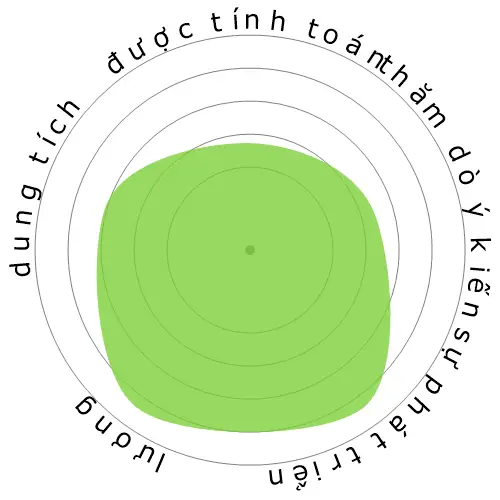Chuyên viên Phân tích Bảo mật Thông tin




Người khác cũng đã xem
Rủi ro tự động hóa đã được tính toán
Rủi ro Trung bình (41-60%): Những nghề có rủi ro trung bình về tự động hóa thường liên quan đến các công việc hàng ngày nhưng vẫn yêu cầu một số sự phán đoán và tương tác từ con người.
Thêm thông tin về điểm số này, và cách tính nó có sẵn ở đây.
Cuộc thăm dò ý kiến của người dùng
Khách thăm trang web của chúng tôi đã bỏ phiếu rằng họ không chắc chắn nếu công việc này sẽ được tự động hóa. Sự đánh giá này được hỗ trợ thêm bởi mức độ rủi ro tự động hóa đã được tính toán, ước lượng có 58% cơ hội cho việc tự động hóa.
Bạn nghĩ rủi ro của việc tự động hóa là gì?
Khả năng nào mà Chuyên viên Phân tích Bảo mật Thông tin sẽ bị thay thế bởi robot hoặc trí tuệ nhân tạo trong 20 năm tới?
Tình cảm
Biểu đồ sau đây được bao gồm ở bất cứ nơi nào có một lượng lớn phiếu bầu để tạo ra dữ liệu có ý nghĩa. Những biểu đồ trực quan này hiển thị kết quả thăm dò ý kiến của người dùng theo thời gian, cung cấp một chỉ báo quan trọng về xu hướng cảm xúc.
Cảm xúc theo thời gian (hàng năm)
Sự phát triển
Số lượng vị trí làm việc 'Information Security Analysts' dự kiến sẽ tăng 32,7% vào năm 2033
Tổng số việc làm, và dự kiến số vị trí tuyển dụng
Dự báo cập nhật sẽ được công bố vào 09-2025.
Lương
Tại 2023, mức lương hàng năm trung bình cho 'Information Security Analysts' là 120.360 $, hoặc 57 $ mỗi giờ
'Information Security Analysts' đã được trả mức lương cao hơn 150,4% so với mức lương trung bình toàn quốc, đứng ở mức 48.060 $
Lương theo thời gian
Dung tích
Tính đến 2023, có 175.350 người được tuyển dụng làm 'Information Security Analysts' tại Hoa Kỳ.
Điều này đại diện cho khoảng 0,12% lực lượng lao động có việc làm trên toàn quốc
Nói cách khác, khoảng 1 trong 866 người được tuyển dụng làm 'Information Security Analysts'.
Mô tả công việc
Lên kế hoạch, triển khai, nâng cấp hoặc giám sát các biện pháp bảo mật để bảo vệ mạng máy tính và thông tin. Đánh giá các lỗ hổng hệ thống đối với các rủi ro bảo mật và đề xuất và triển khai các chiến lược giảm thiểu rủi ro. Có thể đảm bảo các biện pháp kiểm soát bảo mật phù hợp được đặt vào vị trí sẽ bảo vệ các tệp số và cơ sở hạ tầng điện tử quan trọng. Có thể đáp ứng với các cuộc vi phạm bảo mật máy tính và virus.
SOC Code: 15-1212.00


Bình luận
Leave a comment
It'll be a race between red and blue team businesses to implement increasingly better models. Social engineering sure, but meh honestly. Will you be able to find incredibly difficult scraps or oversights the model missed? Will it be worth the risk and investment of the pentester? Overall bleak outlook.
This will increase the ability of automated systems to detect any remaining vulnerabilities, but will not completely remove the need for technicians to maintain, remediate, and upgrade the systems. There will still be a need to touch the hardware. Depending on individual situation, some companies will use more of AI tech than the others. We can already see something similar in the engineering, accounting, and law practice, where paralegals and drafters have not been completely replaced by software. Sole practitioners might use automation more extensively than the large corporations, but there will be a legal requirement for a human audit.
In addition, location-independent digital nomads who train themselves to use the automation tools could do a lot of accurate work in a short amount of time, as independent consultants and freelancers, and do business with multiple clients.
Making the choice to transition from repetitive and tedious manual work to automation, will be akin to transitioning from flintstones to nuclear power. Nuclear power still needs humans, and so will information security solutions.
Để lại phản hồi về nghề nghiệp này